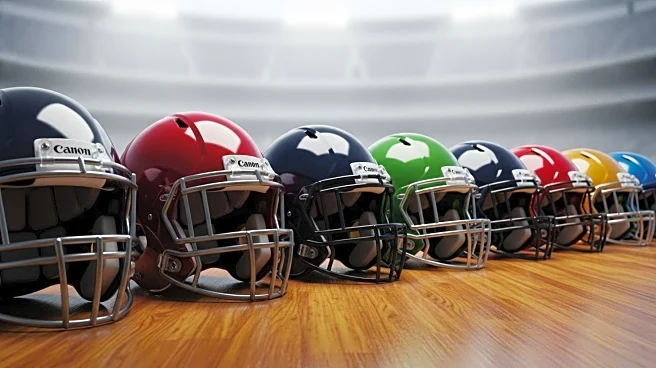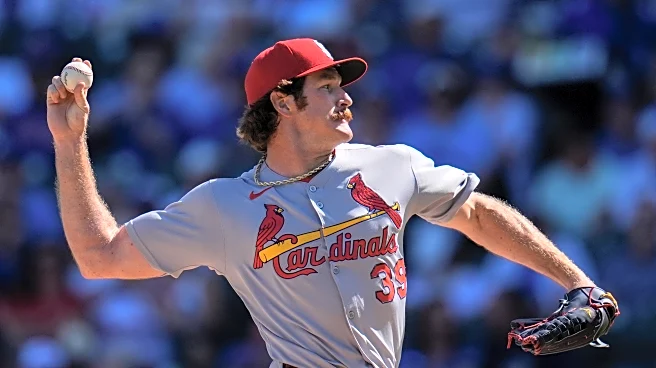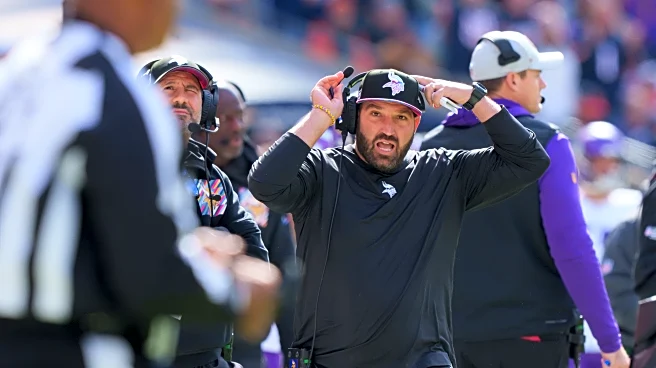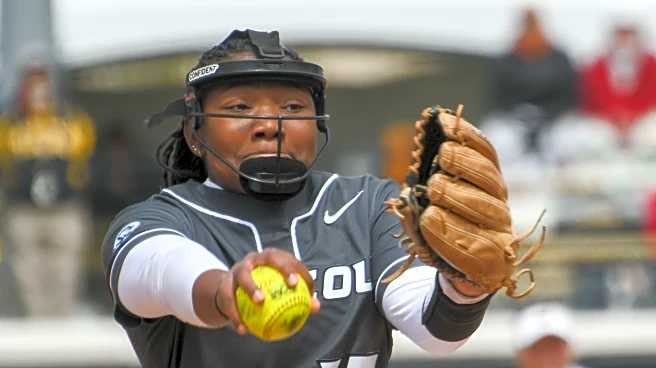What's Happening?
The Cleveland Browns have made a significant change at quarterback, replacing Joe Flacco with Dillon Gabriel. This move is part of a broader trend among NFL teams seeking to evaluate their long-term prospects at the quarterback position. The New York Giants have similarly turned to rookie Jaxson Dart, demoting veteran Russell Wilson. These changes reflect a desire for immediate performance boosts and long-term evaluations. Other teams, such as the Carolina Panthers, Cincinnati Bengals, Las Vegas Raiders, and New Orleans Saints, are also facing challenges with their current quarterbacks and may consider similar changes. The Panthers' Bryce Young has struggled, leading to speculation about a potential switch to Andy Dalton. The Bengals' Jake Browning has not performed well in Joe Burrow's absence, prompting discussions about bringing in a seasoned veteran like Kirk Cousins. The Raiders' Geno Smith has been inconsistent, raising the possibility of Kenny Pickett taking over. The Saints, despite Spencer Rattler's reasonable performance, may opt to test Tyler Shough as they continue their rebuild.
Why It's Important?
These quarterback changes are crucial for the teams involved as they seek to improve their performance and plan for the future. The decisions could impact team dynamics, fan engagement, and the overall competitiveness of the league. For teams like the Panthers and Bengals, finding a reliable quarterback is essential for maintaining offensive momentum and achieving better results. The Raiders and Saints are in rebuilding phases, and evaluating younger talent could provide insights into their long-term strategies. These changes also affect the players involved, as they navigate the pressures of starting roles and the potential for career advancement or setbacks. The broader NFL landscape may see shifts in team standings and playoff prospects as these quarterback changes unfold.
What's Next?
As teams consider quarterback changes, the next steps involve evaluating the performance of new starters and assessing their fit within the team's offensive strategies. Coaches and management will closely monitor these players' performances to determine if further adjustments are needed. The potential acquisition of external talent, such as Kirk Cousins for the Bengals, could be explored to bolster team capabilities. Fans and analysts will watch closely to see how these changes affect team dynamics and outcomes in upcoming games. The decisions made in the coming weeks could influence draft strategies and offseason moves as teams prepare for the next season.
Beyond the Headlines
The quarterback changes highlight the evolving nature of team management and the importance of adaptability in professional sports. These decisions reflect broader trends in the NFL, where teams are increasingly willing to make bold moves to secure future success. The ethical considerations of player treatment and career development are also relevant, as teams balance immediate performance needs with long-term player growth. The cultural impact of these changes is significant, as fans react to new team dynamics and the potential for unexpected successes or challenges.











